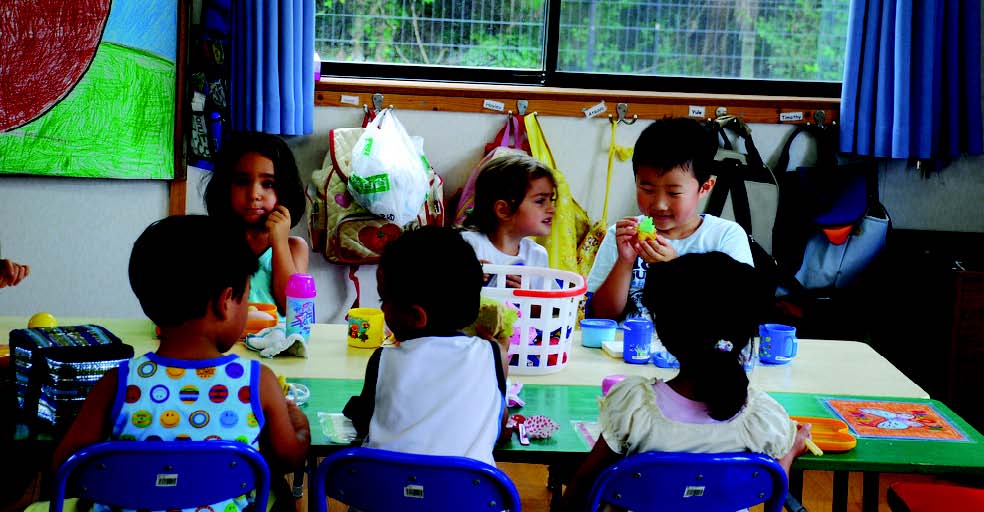by Elise Mori
The Washington Post’s Sara Sklaroff writes: “[In the U.S. and the U.K.] parents too often face a choice between inadequate care outside the home and inadequate income within it.” But if you are bringing up children in Japan, things are different: Japanese bureaucracy can often seem like some cruel and unusual punishment, but it’s this bureaucracy which keeps in place a childcare and benefits system that we can all rely on. So, what’s available to you?
To start with, there are several kinds of state benefits for parents and carers which you could be eligible for—ask your ward office (kuyakusho) or city office (shiyakusho) about child allowance (jido teate) and child-rearing allowance (jido ikusei teate). Supplementary benefits will be available to you in case of financial duress, such as if you are separated from your partner or if you or your child have a disability.
Next, there are plenty of government-run and private nurseries and daycare programs available. All childcare workers must pass Expat Working Parents in Japan a range of relevant examinations and be government screened and accredited, and the standard of care is generally accepted as being very good, with a high staff to child ratio. Daycare can start from as early as zero at nursery school (hoikuen/hoikusho) and progress to kindergarten (yochien), which starts from the age of four. Your child will quickly develop social skills and will pick up the language in no time. Foreign children are not legally required to attend school, but if you intend to send them to Japanese public school, dedicated one-on-one help is available to all non native Japanese speakers, no matter what their age. Apply for this through your ward office (ask for the department called kyo iku iinkai) or arrange it through the school.
Other services include home childcare service (hoiku mama), provided by government-accredited childcare givers at their home. Children under three years of age are eligible if neither parent can take care of them, whether for work or health reasons. Also available is childcare for sick children whose parents are, say, at work, and short stay childcare (for children under 12), which is available when the carer suddenly falls ill, is giving birth, or needs to look after family members in hospital. In addition, there is a range of measures in place to help children and parents with physical impairments or mental disabilities. Efficient emergency procedures exist if your family needs any of the above in a hurry, though please note that these are not 24-hour services. Outside normal nursery hours, care is also available in the form of tokutei hoiku.
The range of services available depends completely on where you live as well as your situation, however, so check with your ward office and ask around with other parents in your area, or consult www.gaijinpot.com/family, which has a comprehensive list of online message boards for families living in Japan. Often what’s available is not always clear because of the language barrier, so don’t be afraid to ask for an interpreter, or go to a foreigners’ assistance ‘salon,’ which exist to help you specifically. Similarly, people who promise to find the answers and ring you back don’t always do so, as they are probably critically overworked, so don’t be afraid to remind them gently as often as needed. Further, if you don’t ask for a specific service by name or apply for it through the proper channel you will not be told that it exists, even though the person you are dealing with understands your needs very well. Sometimes finding a different person to help you can work wonders. Remember that in Japan nothing happens without unimaginable amounts of paperwork and red tape, but if you can navigate your way through it all, well-run, affordable, and high-quality childcare is at your disposal—which is not something that can be said for all daycare systems around the world.
Parenting Tip
Have a long car journey ahead and bored with your current selection of child-friendly in-car tunes? iTunes (download free from www.apple.com) has an amazing list of podcasts on every conceivable subject imaginable (the latest, hottest tunes through to astronomy and comedy), and you are bound to find something that will appeal to every member of your family. Current favorites include National Geographic Podshock and Dr. Who Watch, but there’s a list as long as my arm in the Families section alone, including Sesame Street video podcast and Storynory, with 30 episodes to download for younger listeners. The best part is that they are all free.









